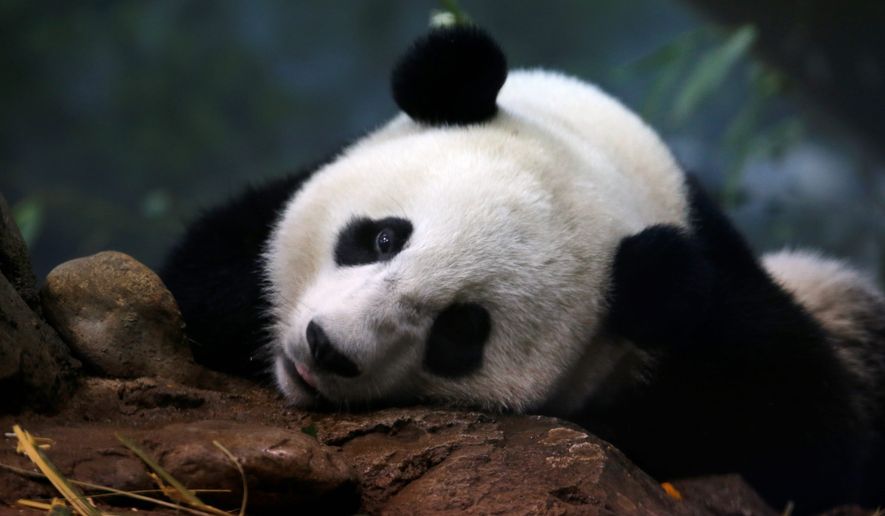In a few short months, Washington will lose one of its favorite residents — without even an election.
Bao Bao the panda is moving to China early next year, officials at the National Zoo announced Thursday.
“Bao Bao is very special to us at the Smithsonian’s National Zoo,” said Brandie Smith, associate director of animal care sciences. “She’s captured the hearts of people all over the world who watched her grow up on the panda cams, and she has been an ambassador for conservation.”
The panda’s relocation is part of an agreement between the National Zoo and the China Wildlife Conservation Association. Giant pandas born at the zoo are transferred to China before age 4.
Bao Bao was born at the zoo’s David M. Rubenstein Family Giant Panda Habitat on Aug. 23, 2013. The zoo announced her name, chosen via an online poll, 100 days after her birth.
In January 2014, Bao Bao made her public debut at the zoo. She has been living separately from her mother, Mei Xiang, since March 2015.
Over the next several months, zookeepers will help acclimate the panda to her specially designed travel crate. The crate will be placed in one of the panda yards, and Bao Bao gradually will spend more time in it each day.
Gabriela Weigel, a law student at the University of Notre Dame who is on fall break, visited the National Zoo shortly after the announcement.
“I just saw Bao Bao for the first time, so I’m pretty sad she’s leaving,” said Ms. Weigel. “But we need more pandas in the world.”
FedEx will fly the 188-pound giant panda with a team of zookeepers and veterinarians during winter, when officials say it’s safer.
In a press release announcing the move, zoo officials said the panda team will monitor Bao Bao throughout the nearly 24 hours of air travel. The keepers plan to bring along 55 pounds of bamboo, 2 pounds of apples and pears, two bags of leaf-eater biscuits, two cooked sweet potatoes and 10 gallons of water.
Bao Bao will live at one of the bases operated by the China Conservation and Research Center for the Giant Panda. She will enter the breeding program after reaching sexual maturity at age 5 or 6. Zoo officials said that will give her plenty of time to adapt to the new habitat.
Bao Bao is one of four pandas at the National Zoo and among fewer than 2,000 giant pandas in the world. Although giant pandas no longer are listed as an endangered species, the population remains vulnerable to threats such as disease, climate change and habitat loss. Animal conservation specialists are hopeful that Bao Bao’s offspring will be introduced to the wild one day.
For the safety of the Bao Bao and her transportation team, the zoo won’t release her exact transfer date. But the zoo and Friends of the National Zoo plan to arrange several opportunities for fans to say goodbye before the giant panda begins her journey to China.
Although the news hasn’t spread far — one zoo cafe employee was shocked to learn of the animal’s upcoming departure — it’s clear Bao Bao will be missed.
“We are sad to see her go but excited for the contributions she is going to continue to make to the global giant panda population,” said Ms. Smith.
• Julia Porterfield can be reached at jporterfield@washingtontimes.com.




Please read our comment policy before commenting.